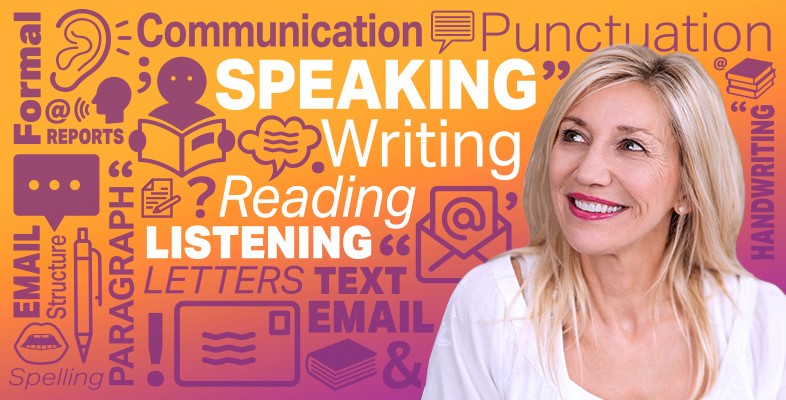3.3 Body language
You can also communicate how you feel by the way you sit or stand, and you can give signals to other people by your movements.
Sitting back in a chair when talking to someone indicates that you feel relaxed. You may tend to sit forward when you’re a bit tense, such as when you’re trying to give a good impression, express interest or concentrate.
Moving from a relaxed position to sitting upright may indicate that you’re about to get up or leave. It may also mean that something has just grabbed your attention.
Of course, you tend to adapt your body language according to the situation you’re in. You probably take a much more relaxed position when you’re with friends and family, but even with these people you may change your behaviour at a formal occasion like a wedding.
Society has expectations about the way people sit and move at different occasions and in different places. There is also an accepted ‘personal space’: norms for how close we get to each other.
Activity 23 More real life
Consider the following situations.
1. How would you feel if someone moved to stand between you and the door (facing you) when you have just stood up to leave?
Discussion
Depending on how well you know the person, you might feel a bit intimidated. You would feel that they were deliberately trying to stop you going. They may want to talk to you about something before you leave.
2. How do you feel if someone moves into your personal space and asks you for a favour?
Discussion
You would probably feel that you were being intimidated or manipulated into doing what they want.
3. You are at a friend’s house having a chat and about 10 minutes ago you said that you must leave. You’re still sitting. Your friend stands up. What message does that give you?
Discussion
You would probably feel that they want you to go.
4. You are in a job interview. The interviewer has been sitting on a wooden chair with one leg crossed over the other. While you are answering a question they suddenly shift to a leaning-forward position. What message does that give you?
Discussion
You would probably feel that they were either disapproving or particularly interested in what you had just said.
Activity 24 Check what you’ve learnt: body language
1. A friend of yours is in trouble that you didn’t know about. A mutual friend comes to you to tell you about it. You are very concerned and want to help. How will you show, without using words, that you are interested?
Discussion
You would probably look at your friend intently and nod gently. You may frown a little and raise eyebrows to express surprise.
2. What gestures, expressions or body language would be appropriate for you in the following situations?
a) A young child is telling you about something that happened to them at school today.
Discussion
You would lean towards them. You would smile and make little comments to encourage them to tell you.
b) You are being introduced to the personnel manager at the place where you have just arrived for a job interview.
Discussion
You would stand up straight, look them in the eye and offer a hand to shake. You would hopefully not be too nervous to remember to smile!
c) Your doctor’s receptionist has just given you an instruction and you’re not sure you understood.
Discussion
You would frown a little. If she didn’t respond to that you would have to ask her to explain again.
d) You are in a group doing some training at work. You don’t understand a procedure.
Discussion
Again, you would probably frown or maybe shake your head a little. If the instructor didn’t respond you may raise your hand a little to get their attention.
e) You are in a group training session and you’ve just asked a question of the trainer. While they start to answer, you realise that you know the answer.
Discussion
You would probably nod your head very obviously.
